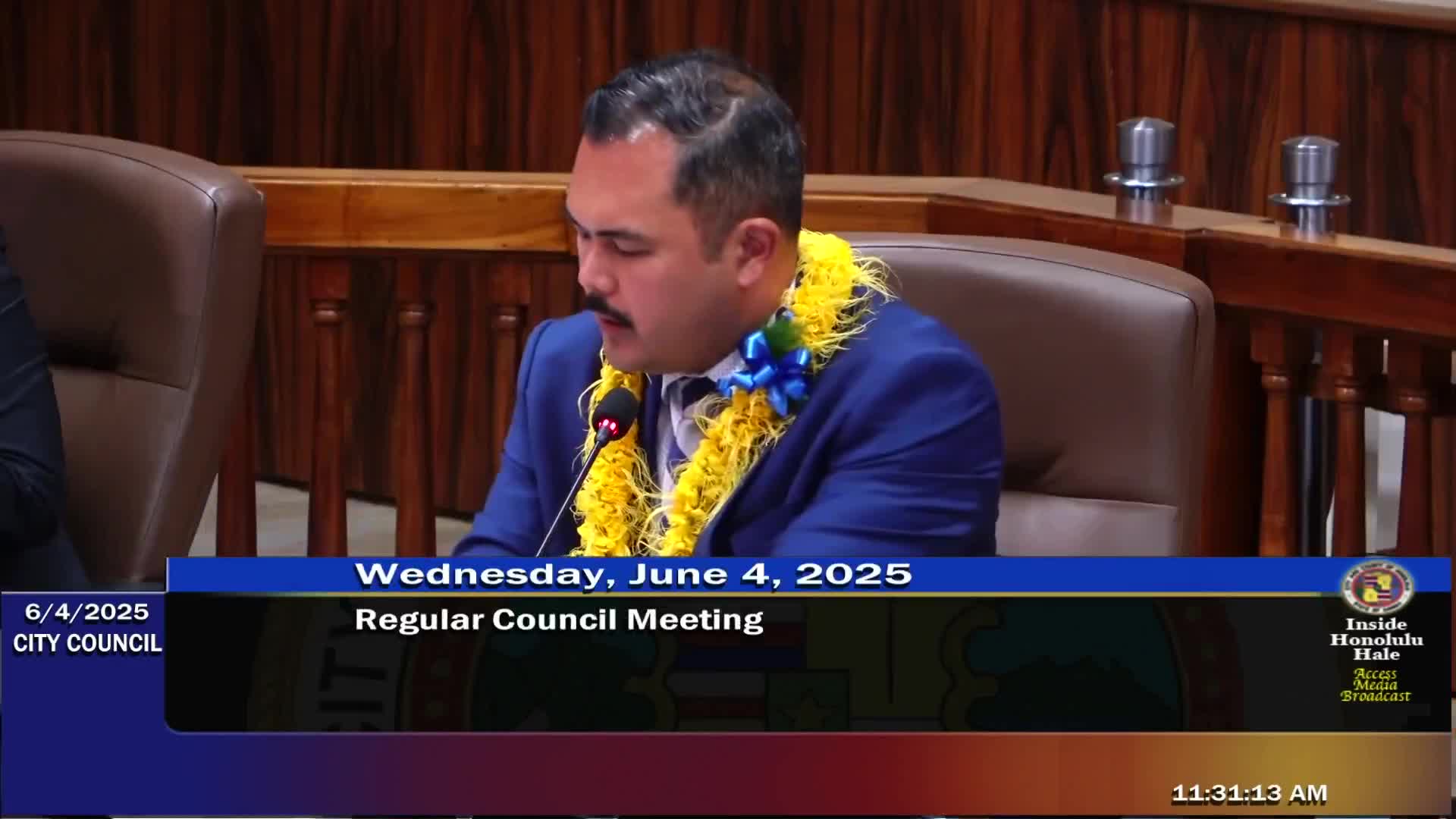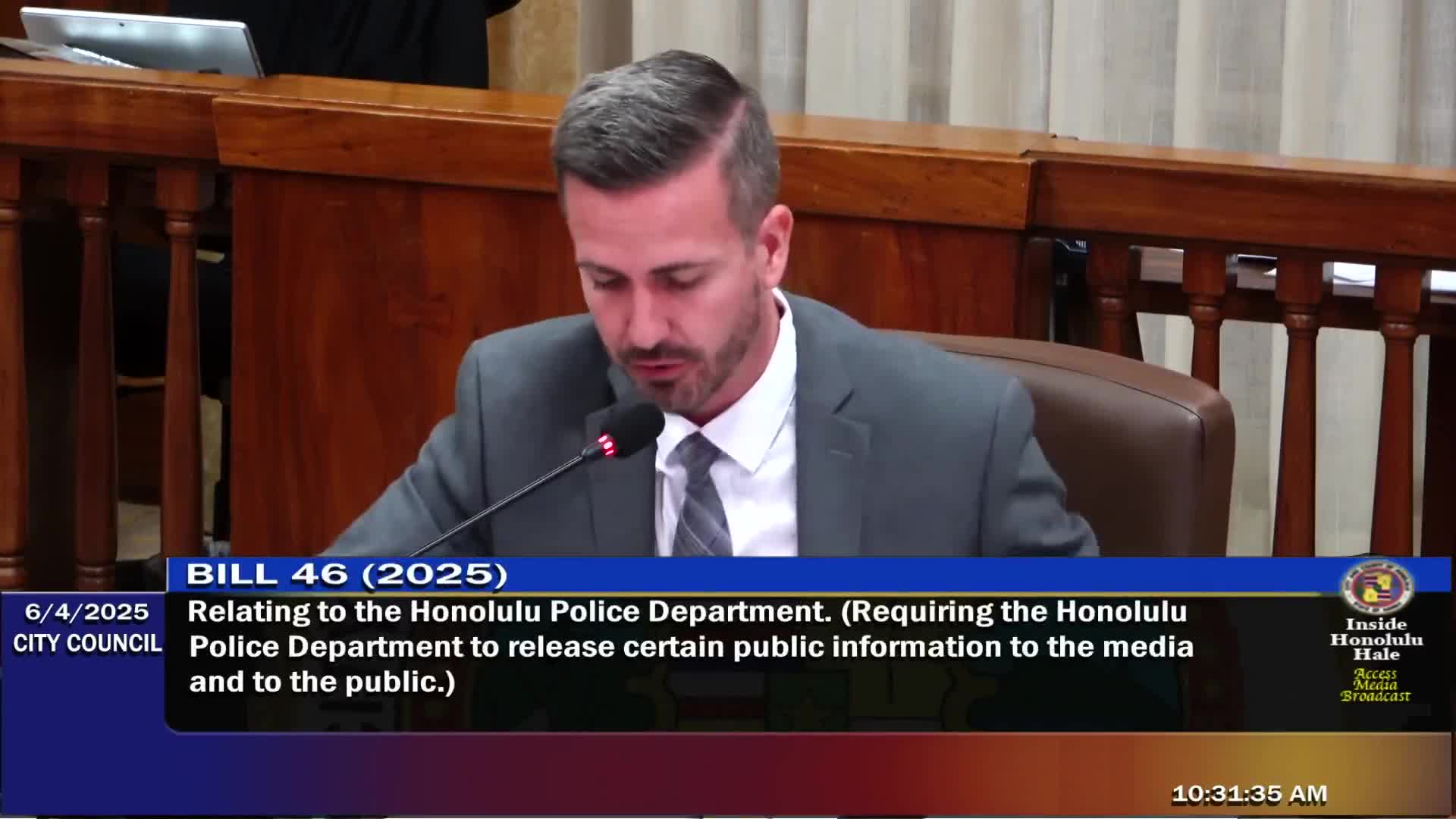Article not found
This article is no longer available. But don't worry—we've gathered other articles that discuss the same topic.

Council defers vote on expanding mayor’s access to fiscal-stability fund amid oversight concerns

Council hears push for police-dispatch broadcasts as HPD and telecom experts warn of legal, safety limits

